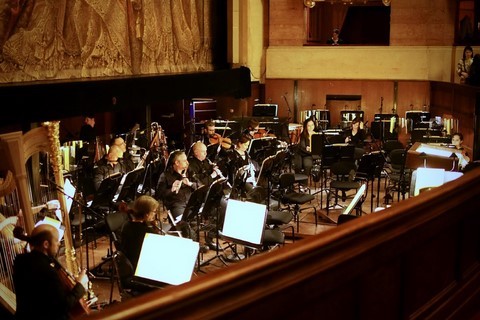Becoming a conductor (II)
Apprenticeship at the Opera

Towards the end of my university time in Berlin, it became clear that I needed to pursue further studies. Instead of relying only on academic education, I decided to get practical training. The early years of my apprenticeship led me to various opera houses.
Aachen
My first professional engagement was to happen in Aachen, Germany, where I worked as a répétiteur at the local opera house. Karajan and Sawallisch had launched their careers there; those were big footsteps.
During university, my focus had been on symphonic repertoire. The idea of working in opera hadn’t come to mind naturally. Germany has a big opera landscape, and there are many répétiteur positions that allow beginners to make their first steps in the profession. As I was an ok pianist, I thought I could give this a try.
As a pianist in opera, you are very far down the hierarchy ladder. You rarely get to conduct (in my case two performances in my first season and about five in my second season). But you develop a feeling for what singers need to perform at their best and you learn many operas. And you get to understand the mechanisms of an opera house, which is a giant organization.
Making my first conducting experience at a real opera house was crucial. The distance between the pit and the stage is a real challenge! Soon I began to look for a position that allowed me to play less and conduct more.
Lisboa
Luckily, I found such a position in one of the most beautiful cities on earth: Lisbon. I got to work at the Teatro Nacional de São Carlos, where I assisted the music director on big productions. I also got to conduct my own opera productions and concerts.
São Carlos is a stagione opera house. Unlike the German repertoire system, where a different opera is played every night, the stagione system concentrates on one piece at a time.
Both systems have their advantages. In a repertoire system, the audience gets to see a vast variety of pieces, which sometimes may be underrehearsed. A stagione theater presents fewer pieces to the audience, but the accident level is often lower. (The quality of a performance depends on a lot of factors. I have witnessed immaculate repertoire performances and shaky stagione performances.)
Bayreuth
After my arrival in Lisbon, I was fortunate to receive an invitation to work for the legendary Bayreuth festival. Without hesitation, I agreed to join their music staff in the upcoming summer. I was going to spend the following six summers in Bayreuth, which was a formative experience. I got to be around top conductors and world-class singers and discover Wagner’s operas.
Berlin
After a few months working as Kapellmeister at Coburg opera house, I was offered the position of Kapellmeister and assistant to the music director at the Deutsche Oper Berlin.
It was a deep dive into the repertoire system. There are few theaters that present more operas per season than the Deutsche Oper. I learned so many pieces, stepped in for rehearsals at short notice, and conducted a lot of great operas myself.
When I joined the Deutsche Oper I was still a beginner. During my tenure, I grew up a bit. Conducting operas for the first time in front of an orchestra that has played them many times requires some stamina. I had to deal with the distances of a huge opera pit and stage. Sometimes I worked with step-in singers who I met for the first time in the performance. I learned to be alert and to react to unforeseen circumstances quickly.
Looking back
Altogether, I spent six years of my apprenticeship almost exclusively in opera. I think that a conductor can only benefit from having experience in opera. There are so many aspects to consider, on- and offstage. The conductor and orchestra have a very important role, but the singers and action on stage are equally important.
In Berlin, I had managed to feel confident in an opera pit. But I felt it was time to rediscover the symphonic repertoire.
.